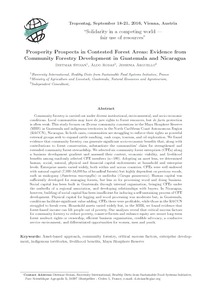Poverty and forests: multi-country analysis of spatial association and proposed policy solutions
This paper examines poverty and deforestation in developing countries as linked problems and focuses on policies that can favour poverty alleviation in forested regions. The paper encompasses two elements: analysis of the spatial coincidence between poverty and forests, and proposed policy options for reducing poverty in forested areas.


